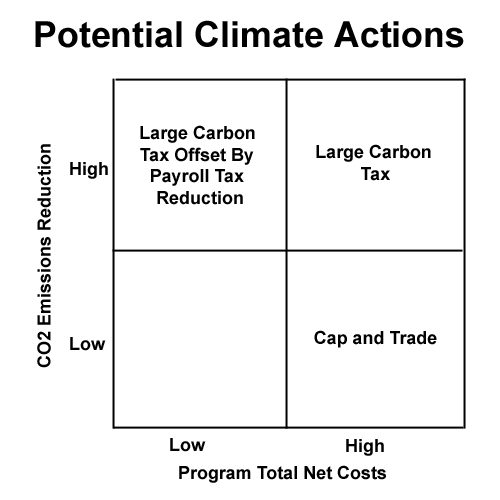About 20 years ago I did a rail transit study for McKinsey & Company with a number of European state rail companies, like the SNCF in France. With my American expectations, I was shocked to see how overstaffed these companies were. At the time, the SNCF had more freight car maintenance personnel than they had freight cars. This meant that they could assign a dedicated maintenance person to every car and still get rid of some people.
Later in my consulting career, I worked for Pemex in Mexico, where the over-staffing was even more incredible. I realized that in countries like France and Mexico, state-run corporations were first and foremost employment vehicles run for the benefit of employees, and, as distant second, value-delivery vehicles and productive enterprises.
Over the last 20 years, I have seen more and more of this approach to public agencies coming to the US. If nothing else, the whole Wisconsin brouhaha hopefully opened the eyes of many Americans to the fact that public officials and heads of agencies feel a lot more loyalty to their employees than they do to taxpayers.
I see this all the time in my business, which is private operation of certain state-run activities (e.g. parks and recreation). I constantly find myself in the midst of arguments that make no sense against privatization. I finally realized that the reason for this is that they were reluctant to voice the real reason for opposition -- that I would get the job done paying people less money. This is totally true -- I actually hire more people to staff the parks than the government does, but I don't pay folks $65,000 a year plus benefits and a pension to clean the bathrooms, and I don't pay them when the park is closed and there is not work to do. I finally had one person in California State Parks be honest with me -- she said that the employees position was that they would rather see the parks close than run without government workers.
Of course, if this argument was made clear in public, that the reason for rising taxes and closing parks was to support pay and benefits of government employees, there might be a fight. So the true facts need to be buried. Like in this example from the Portland transit system, via the anti-planner.
In 2003, TriMet persuaded the Oregon legislature to allow it to increase the tax by 0.01 percent per year for ten years, starting in 2005. In 2009, TriMet went back and convinced the legislature to allow it to continue increasing the tax by 0.01 percent per year for another 10 years. Thus, the tax now stands at $69.18 per $10,000 in payroll, and will rise to $82.18 per $10,000 in 2025.
At the time, TriMet promised that all of this tax increase would be dedicated to increasing service, and as of 2010, TriMet CFO Beth deHamel claims this is being done. But according to John Charles of the Cascade Policy Institute, that’s not what is happening.
Poring over TriMet budgets and records, Charles found that, from 2004 (before the tax was first increased) and 2010, total payroll tax collections grew by 34 percent, more than a third of which was due to the tax increase. Thanks to fare increases, fares also grew by 68 percent, so overall operating income grew by about 50 percent, of which about 7 percent (almost $20 million) was due to the increased payroll tax.
So service must have grown by about 7 percent, right? Wrong. Due to service cuts made last September, says Charles, TriMet is now providing about 14 percent fewer vehicle miles and 12 percent fewer vehicle hours of transit service than it provided in 2004 (comparing December 2004 with December 2010). TriMet blamed the service cuts on the economy, but its 50 percent increase in revenues belie that explanation.
By 2030, according to TriMet’s financial forecast (not available on line), the agency will have collected $1.63 billion more payroll taxes thanks to the tax increase. Yet the agency itself projects that hours and miles of service in 2030 will be slightly less than in 2004.
Where did all the money go if not into service increases? Charles says some of it went into employee benefits. TriMet has the highest ratio of employee benefits to payroll of any transit agency. At latest report, it actually spends about 50 percent more on benefits than on pay, and is the only major transit agency in the country to spend more on benefits than pay. This doesn’t count the unfunded health care liabilities; by 2030, TriMet health care benefits alone are projected to be more than its payroll.
